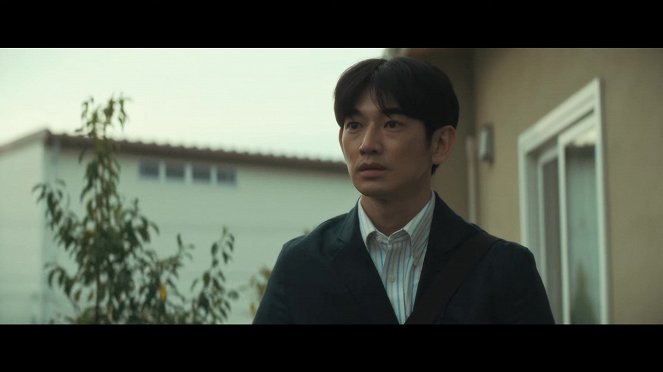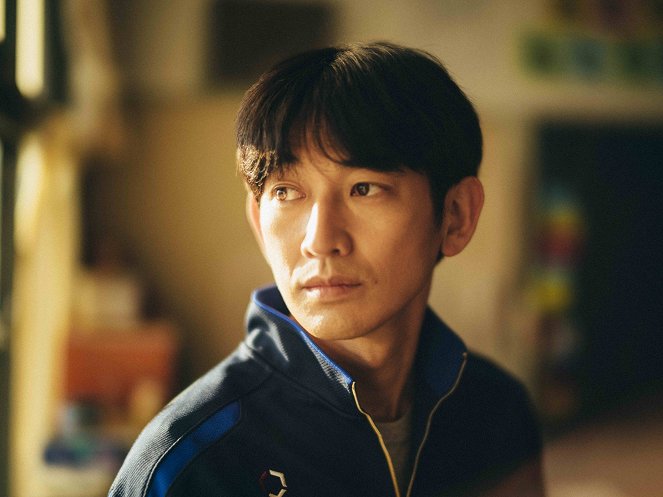Rendező:
Hirokazu Kore'edaForgatókönyvíró:
Yuji SakamotoOperatőr:
Ryûto KondôZeneszerző:
Ryūichi SakamotoSzereplők:
Sakura Andō, Eita Nagayama, Soya Kurokawa, Hinata Hiiragi, 高畑充希, 角田晃広, Shidō Nakamura, Yūko TanakaTartalmak(1)
A nagy tó partján fekvő, békés japán kertvárosban nyugodt életet élnek az emberek - egy egyedülálló anya, aki szereti a fiát, egy tanárnő, aki törődik a diákjaival, és az ártatlan gyerekek. Amikor a kisfiú, Minato furcsán kezd viselkedni, az anyja érzi, hogy valami nincs rendben. Úgy sejti, hogy egy tanár lehet a felelős, ezért elmegy az iskolába, hogy kiderítse, mi történt. A történet az anya, a tanár és a gyerek szemszögéből is kibontakozik, és fokozatosan a felszínre kerül az igazság, amely a média figyelmét is felkelti. Egy viharos reggelen hirtelen eltűnnek a gyerekek. (CirkoFilm)
(több)Videók (6)
Recenziók (5)
Érzékeny elbeszélés, amely két társadalmi témát ölel át: egy olyan iskolarendszer abszurd felépítését, amelyben a gyerekeknek több joguk van, mint a tanároknak, és queer kérdéseket, egy rémült gyerek saját szexualitásának korai felismerésének formájában. Mindez úgy, hogy az iskolai környezet több kulcsmomentumát figyeli meg az érintettek több nézőpontjából, akiknek ez a személyes vagy szakmai életét érinti. Kiválóan megírt párbeszédes film, csendes és erős pillanatokkal. [San Sebastian IFF]
()
"Happiness is something anyone can have." Off the top of my head I can’t name any other film where the most depressing and darkest possible denouement is delivered as a beautifully lyrical wonder-not feel-good punchline. And this contrast of "uplifting chilliness" has bitten into me so much that I can't get it out of my head. Yet it's such a titanic detail, so much so that it's bullshit, you'd think. It trumps all other impressions. The positives (excellently constructed, enjoyably down-to-earth and subdued despite the gravity and magnitude of the themes, a phenomenal Sakura Ando) and negatives (especially the third part, which shuffles on its feet because you already know "where, who, why" by that point, and it's even clear what it's inevitably leading to). A traditional and yet in many ways different Kore-eda - maybe because this time he is not also the author of the script? As much as I wouldn't classify this as one of his best works, it's paradoxically the one that sticks with me the most, which I appreciate.
()
A sensitively shot drama exploring a sequence of events from three different perspectives, each of which reveals a little about what really happened. My only quibble goes to the length of the third part, which after all the cards are revealed kind of falls flat, but this is made up for by a very impressive and uncompromising ending. [KVIFF 2023]
()
A thoroughbred award-winning drama, exactly in that perfect repulsive form that I absolutely hate. Monster can shake hands with Anatomy of a Fall, both are ungratifying movies for the audience that gave me nothing in life, just stole two precious hours of my time. The real monster here is the director, because making a movie where nothing interesting happens in two hours is truly an art. The film is told from three different perspectives, but when you have a story that is civil, mundane, and uninteresting, even twenty different perspectives wouldn't be enough for a good film. I read enthusiastic reviews here about an excellent screenplay, but except for a twist, you must ideally go all the way to Taiwan. There is no tension, no plot twists, no progression, no violence, no atmosphere, the visuals are cheap, the actors are unimpressive, the film has no emotions, the dialogues are nothing particularly interesting, and when the topic of education is discussed, there is not even bullying, which is already a complete miss. A screenplay treat that is tasty like 3-day-old bread. Pure Japanese shit. 2/10.
()
Let’s leave aside all the talk about Koreeda returning to form. The main thing is that the foundation of his new film, Monster, is a brilliant screenplay by Yuji Sakamoto, which comprises the solid backbone of this maximally impressive work. Though the narrative is built on the often used concept of various perspectives on the same events, through its precise construction it not only demonstrates the effectiveness of this narrative concept, but primarily uses it to achieve an absolutely absorbing and devastating result. It carefully builds up specific expectations and assumptions in the viewer, which it then gradually and repeatedly breaks down, thus concurrently mirroring one of its central themes. Monster deals with the monsters of everyday life, which are us. What makes us such monsters is not outright malice, but our capacity to resort to hasty conclusions that we arrogantly draw based on fragments of situations without trying to see the whole picture first. In Koreeda’s grasp, this foundation takes on a disarming form, as he avoids showiness and instead approaches the whole narrative about the fragility of pain with subtle immediacy. ___ When seen at the Cannes Film Festival, Monster became for me the embodiment of that Holy Grail of cinematic experiences of the kind that one hopes to find at festivals, even though that rarely happens anymore. Koreeda first thoroughly disarmed me with his treatise on bullying and pain, and then absolutely crushed me in the climax, to such an extent that I had the desire to get away from the frantic bustle of the festival and just wander the streets alone in the night and let the film's emotions and ideas reverberate within me.
()



Hirdetés